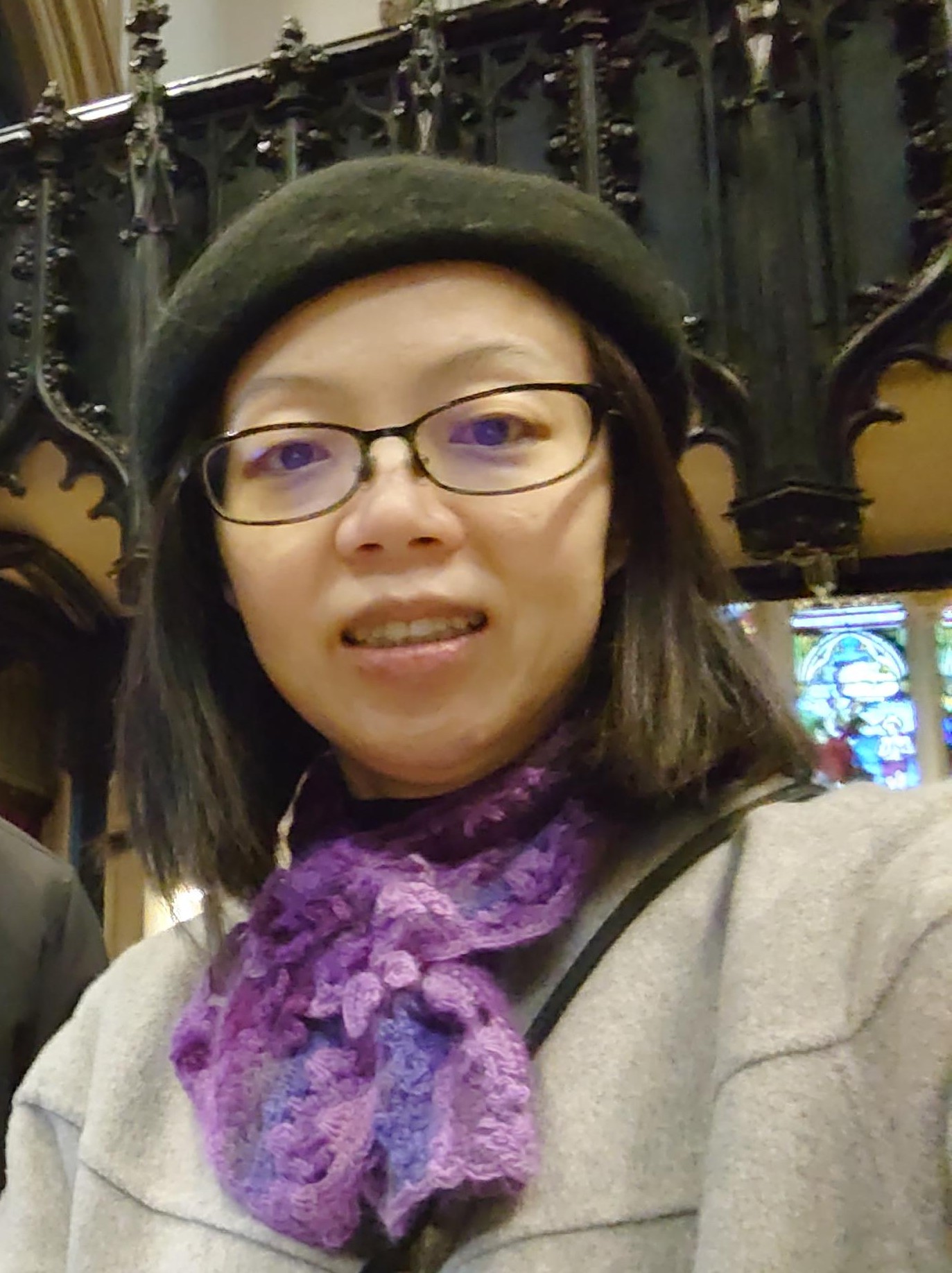Researcher of the Month, February 2025: Yannis Ng

Yannis Ng is a PhD candidate in Theology and Religious Studies at the University of Leeds and a member of the Centre for Religion and Public Life. Her research focuses on Hebrew Bible wisdom literature (primarily, the books of Ecclesiastes and Job), trauma-informed and bystander approaches.
Tell us a little about your research journey—how did you get to where you are right now?
Of making many books there is no end, and much study is a weariness of the flesh. (Ecclesiastes 12:12)
Returning to university to pursue biblical studies after graduating in a science subject has indeed been a "weariness of the flesh," but I have found it both worthwhile and necessary.
As a Christian, I have always been fascinated by the richness of meaning in the Bible, yet I was often confused by the vastly different interpretations of the same passage. I came to realise how biblical texts are sometimes used to serve political purposes. A well-known example is the use of Romans 13:1-2—"be subject to the governing authorities"—to urge Christians to obey the government, or Genesis 1:26-27 to argue against homosexuality. Seeing how the Bible can be interpreted in different (and often political) ways deepened my awareness of the complex relationship between biblical texts and public life. This realisation led me to study biblical texts more closely, equipping myself with knowledge of biblical languages—Greek and Hebrew—to better understand what the texts actually say.
A time to be born and a time to die.
A time to weep and a time to laugh. (Ecclesiastes 3:2a, 4a)
My interest in trauma studies began through personal experiences of loss. When I was developing my research proposal in 2019, reading these verses from Ecclesiastes in a time of weeping resonated with me in a new and profound way.
My research focuses on Ecclesiastes and traumatic literature, and as I wrote my proposal, I encountered the concept of communal trauma. At first, my focus remained on individual experiences of trauma, but by the time I began my PhD, communal trauma had become a stark reality—especially for my home city, Hong Kong.
Beginning my research in such a difficult time has not been easy. Yet, I hope that through biblical studies and situational interpretation, I can gain a deeper understanding of the texts and contribute to conversations on trauma, resilience, and community healing.
What are you currently, or about to start, working on?
Right now, I am in the process of editing my thesis for submission. Initially focused on trauma, my research has expanded to include the perspective of the bystander. I explore how Ecclesiastes can be read through both trauma and bystander perspectives. The bystander approach highlights particularly the trauma of bystanders, as distinct from direct victims. My application considers not only Qoheleth [the first-person speaker in Ecclesiastes] as a bystander, but also the reader as bystander. This seeks to promote an active reading of Ecclesiastes, encouraging readers to engage with the text much like an active bystander rather than remaining passive for an authoritative interpretation. I also argue that taken together these approaches facilitate critical empathy, which, in turn, brings relevance, meaning and transformation to both text and reader.
In what way(s) do you feel your research examines the role of religion in public life and the relationship between the two?
Religion often plays an unseen but powerful role in shaping public life. My research explores how ideologies embedded in biblical interpretations influence our perceptions of others, revealing how faith traditions continue to shape public discourse today. By integrating trauma and bystander perspectives, I propose a critical and empathetic reading strategy that highlights often-overlooked or misunderstood figures—both in biblical texts and in contemporary society.
For example, in my publication on Lot’s wife (Genesis 19), I re-examine her story empathetically through my perspective as a migrant woman. Rather than viewing Lot's wife's act of looking back as disobedience, I imagine it as a neutral action—one of longing and loss, much like a person leaving their home city. Similarly, in my presentation on Elkanah, Peninnah, and Hannah (1 Samuel 1), I challenge the conventional view of Elkanah’s words as romantic, instead interpreting them through the lens of coercive control. I highlight how Hannah’s response demonstrates self-empowerment in the face of such dynamics. These readings reflect my broader interest in amplifying the voices of overlooked figures, both in the texts and in society. By bringing attention to these figures and the ideologies within biblical texts, I aim to foster greater sensitivity in how we engage with the text and to examine its impact and agency in our world today.
